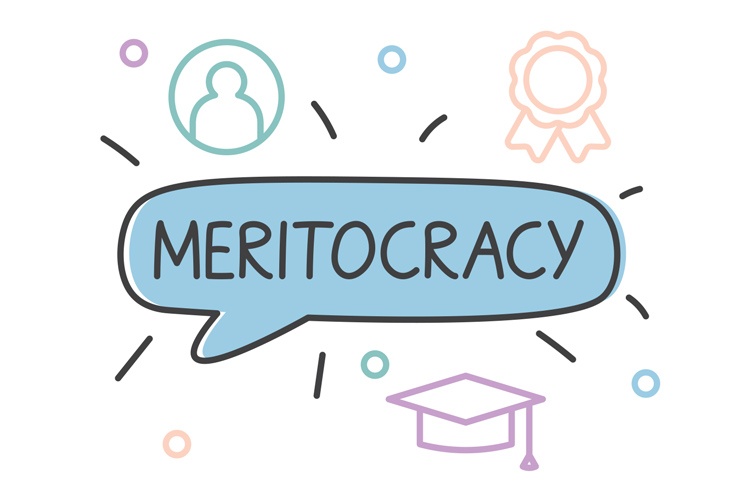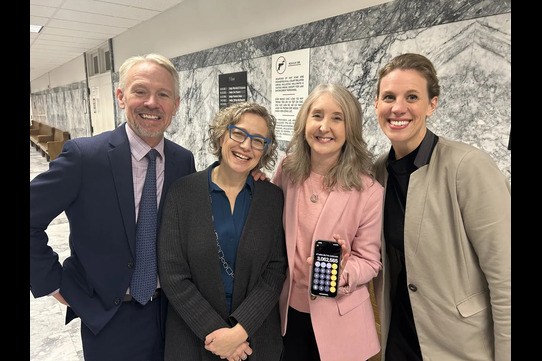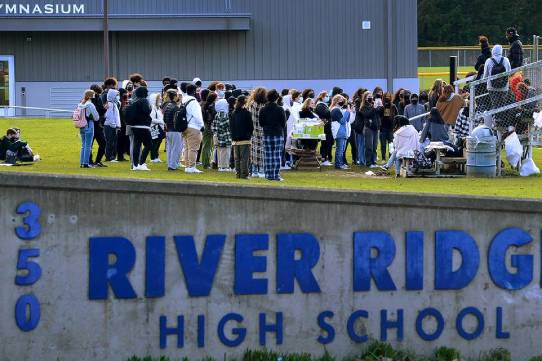Embracing Meritocracy

Beth Bloom | Seattle, WA. February 10, 2022
Embracing Meritocracy: The unifying principal that people should get out what they put in.
“While the dream of workplace meritocracy is not yet a reality for all of us, this unifying framework can inspire a diverse set of jurors to return a great verdict.”
America is not so much a place or a people, but an idea of equality and opportunity. Here, we earn our power and success based on our demonstrated ability and talent alone. It seems that from birth, we are taught that ordinary Americans can rise to fortune with no barriers beyond their own making. Rising from meager means to riches based on hard work and perseverance is a badge of honor. This universal American hope still inspires us as a nation despite our deep disagreement about almost everything else.
We love the idea of meritocracy. And we oppose any barriers to success. Meritocracy appeals to our sense of fairness. This “American dream” is a shared national value system. In the workplace, the idea that companies are structured to reward the most talented and determined employees is a sacred belief.
Meritocracy Is the Central Idea Behind Workplace Laws.
Our “rags to riches” American dream is the foundation of our laws that govern the workplace too. In 1964, upon passage of Title VII of the Civil Rights Act, President Johnson cited the Declaration of Independence phrase “all men are created equal” when he recognized that historically many Americans were denied equal treatment. He promised the new workplace anti-discrimination law would ensure that “those who are equal before God shall now all be equal” in all aspects of American life.
Title VII ushered in a new era of equal opportunity protections. Title VII prevents discrimination in the workplace or in hiring based on sex, race, religion, and national origin. Older workers received protection from discrimination based on age in 1967. And in 1990, the Americans with Disabilities Act extended hiring and workplace protections to those with disabilities and required that employers provide reasonable accommodations. Then in 2020, the US Supreme Court recognized that different treatment in the workplace because of sexual orientation or gender identity is also unlawful under Title VII.
Anti-discrimination laws aim to remove barriers to full integration for all people to participate in the American Dream. Whoever you are, wherever you come from, if you work hard and develop your talent or skill, you can succeed and prosper in this country — that is the message of these laws. Meritocracy is now more than just an idea. It is the law of the land.
We Agree on the Myth. We Disagree on the Reality.
We embrace the idea of meritocracy because it supports our sense of can-do individualism that has shaped American mythology and gives hope to all. We want to believe that anti-discrimination laws have removed all barriers. We want to believe that the playing field is level for everyone.
The problem is that many people, especially women and minorities, experience the modern American workplace as a deeply rigged system. Researchers consistently find that the American workplace is not barrier-free. Many of us have seen actual discrimination happen in our own workplace and believe that it is real. We have no problem with anti-discrimination laws to level the playing field.
On the other hand, some of us resent anti-discrimination laws because we fear we will lose out if only women and minorities receive “special rights.” And worse still, sometimes employees claim discrimination to cover up deficiencies. No one likes to see anyone else get ahead by cheating the system. We have problems with anti-discrimination laws if used to take advantage of others.
There is truth on both sides of this debate. We all need the hope inspired by the American Dream. But we face undeniable division on how best to achieve meritocracy.
This tension creates a challenge for jurors in employment cases. Jurors will enforce laws they believe are just and right. All jurors want to do what is right, including those who are skeptical that discrimination is a serious problem in modern America. As lawyers for employees, we must ask ourselves, “How can we talk about discrimination in a way that speaks to the interests of every juror, no matter their world view?”
Employment Trials Should Focus on Moral Energy.
The first step is to recognize the moral energy in our cases. We are all guided by a strong sense of right and wrong. We can feel when something is not right. This visceral reaction is largely intuitive. It derives from a shared set of moral foundations. We know that the workplace is not morally neutral. It is governed by the same moral foundations as everything else. There is plenty of moral energy to go around.
We are looking for cases with facts that emphasize moral energy. Has an employee who sacrificed for the company been harmed without any human caring? Has an employee who worked hard and expected fair treatment been cheated out of opportunities? Has an employee who was loyal to the company been betrayed through broken promises? Has an employee treated superiors with respect and deference while those same superiors acted improperly? Has an employee acted with dignity while her bosses degraded her? Has an employee who worked the hardest gotten the greatest rewards, or have others who contributed less received more?
The moral energy comes from the facts. But good lawyers organize the facts in a way that highlights moral energy. Every strong employment case triggers some or all of the six moral foundations. Jurors are usually workers not bosses. We care deeply about fairness in the workplace because we understand that, if your employer can treat their workers unfairly, then so can ours.
Building a Shared Moral Framework of Meritocracy.
The goal of any good trial lawyer is to build a shared moral framework with the jurors. This requires approaching jurors with respect, openness, and warmth. It requires the ability to see the other person’s point of view. And, for employment lawyers, it means that just because we may feel passionately about an issue, cause, or value does not mean our jurors will. None of us can safely assume that a group of 8 to12 strangers shares our “truth” on matters as delicate as racism, feminism, ableism, and homophobia. Our job is to lead a diverse group toward a just outcome. This means meeting jurors where they are. It also means facing the truth about public opinion.
One reason for the divide between liberal and conservative jurors is their differing views on the importance of equality. Championing the equal treatment of those who are underdogs or are historically oppressed is a foundation of Liberal ideology. Conservatives do not like oppression, but Conservatives are more concerned with the welfare of their own groups. A focus on equality for its own good does not appeal to conservative values. Neither does an emphasis on equal outcomes.
While we may be divided on the value of “equality,” we all believe in “fairness.” Fairness is at the core of many of our common moral foundations. The questions listed above begin to tease out these core beliefs. One in particular — proportionality — has explicit application to employment cases. Proportionality is the moral value reflected in our shared dream of meritocracy. Most Americans believe that people should get what they deserve based on their effort and accomplishments.
When people work together, we want to see those who work the hardest get the largest gains. If everyone works equally hard, then we want them to recover equal gains. But if some people work doubly hard while others contribute nothing, most of us do not want to see the benefits distributed equally. We want people to get what they deserve and not get what they do not deserve.
There is a unifying force in this type of fairness. We want to believe that if we work hard we can get ahead. A fair workplace is one where people are rewarded in proportion to what they contribute, even if that means unequal outcomes. This is what the American Dream looks like in the workplace. When hardworking people cannot get ahead while others cheat the system and reap rewards, we all get angry. We all want to right this wrong.
We all agree that “people should get what they deserve.” Across the political spectrum, the belief that we should receive in proportion to what we contribute is near universal. We all want to live in a world in which the best people and ideas win. This shared moral framework embraces our nation’s history and spirit.
The dream of meritocracy may not be a reality for all of us. But this unifying framework can inspire a diverse set of jurors to reach a just and great verdict. Rather than deride meritocracy as a “myth” or a “sham,” it is better to embrace meritocracy as an aspiration. Then point out how meritocracy failed to reward the best people and ideas in your case, and ask jurors to make it right. We can build on meritocracy as a shared worldview to bring people together to right wrongs. And that is how we level the playing field — one case at a time.

Teresa Levine wins case against North Shore Utility District
A jury awarded a former Northshore Utility District employee more than $3 million this month in her gender discrimination and retaliation case.
Christie Tran alleges retaliation in law suit against NTPS
A former North Thurston Public Schools teacher who supported students during protests in 2022 against racism and sexual harassment has sued the district, alleging school officials retaliated against her.
Christie Tran files suit against North Thurston Public Schools
A North Thurston Public Schools teacher who supported students during protests in early 2022 has filed a lawsuit against the district, claiming district officials retaliated against her for her stance.

Teresa Levine wins case against North Shore Utility District
A jury awarded a former Northshore Utility District employee more than $3 million this month in her gender discrimination and retaliation case.
Christie Tran alleges retaliation in law suit against NTPS
A former North Thurston Public Schools teacher who supported students during protests in 2022 against racism and sexual harassment has sued the district, alleging school officials retaliated against her.
Christie Tran files suit against North Thurston Public Schools
A North Thurston Public Schools teacher who supported students during protests in early 2022 has filed a lawsuit against the district, claiming district officials retaliated against her for her stance.





